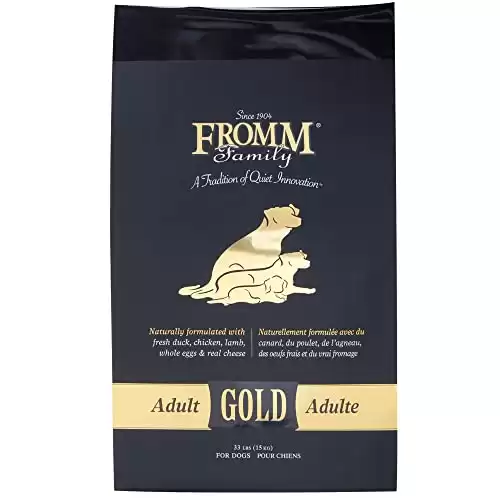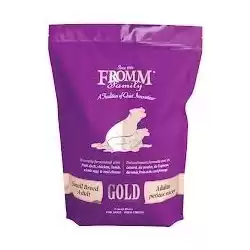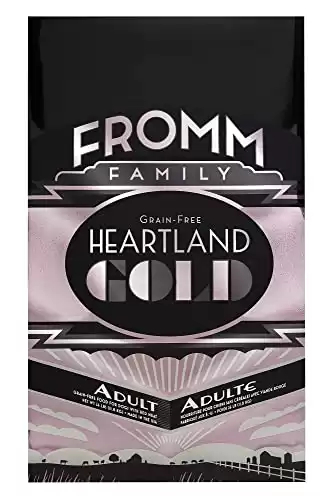Choosing suitable fruits and vegetables for their pet has been an arduous task for most dog owners. A few dog owners find it challenging to remember healthy foods for their dog’s consumption and those that are not.
So, considering raspberries, where do they fall? On your dog’s bowl or in the trash can? Are raspberries good food for dogs? The simple answer to these questions is “Yes. Dogs can safely eat raspberries but in moderate quantities.”
In this article, we will be discussing everything you need to know about feeding raspberries to your dog, including the benefits, risks, and quantity.
Can Your Dog Eat Raspberries?
Yes, raspberries are safe for your dog. Consuming raspberries has a lot of health benefits for your dog.
Raspberries and their high antioxidants are beneficial for pups and older dogs. Large and older dogs often suffer from joint pains, but the anti-inflammatory properties of raspberries help alleviate joint pain.
However, there are some things you need to be aware of before feeding your pup this treat. The highest levels of xylitol are found in raspberries. Xylitol is a natural sweetener found in a lot of fruits and vegetables.
Also, if you are introducing raspberries to your pup for the first time, you need to take it slowly. Feed your pup in moderate quantities even when you’ve been feeding it raspberries for a while.
- For dogs with no dietary concerns
- Chicken and duck are the primary proteins
- Includes brown rice, pearled barley, and oatmeal
- With added probiotics
Health Benefits of Raspberries to Your Dog
Do you know dogs do not need to eat fruit or vegetables for nutritional value? If you give your dog high-quality dog food, your dog can do just fine without raspberries.
However, raspberries are nutritious. It contains the following nutrients in varying proportions:
- Vitamin C
- Magnesium
- Potassium
- Iron
- Manganese
- Vitamin B6
- Fiber
Raspberries are exceptionally high in manganese, vitamin C, and fiber but low in sugar and calories.
These nutrient compositions are why raspberries provide many health benefits to your dog. Below are some of the benefits of feeding your dog raspberries.
- Specifically designed for smaller breeds
- Added probiotics for digestive health
- Duck, chicken meal, and whole chicken are the primary protein sources
- Contains fish meal and salmon oil
Improves Gastrointestinal Function and Weight Loss in Dogs
Raspberries contain a high level of dietary fiber. They contain about 15g of carbs, out of which 8g is fiber. 20% weight of raspberries is comprised of fibers which give an additional boost to improve your dog’s digestive system.
Studies show that dietary fiber can help regulate your dog’s bowel movement. It also improves food digestion, reduces constipation, and encourages weight loss in dogs.
The weight loss function makes raspberries ideal for obese dogs.
Raspberries Prevent Liver Diseases and Cancer
Another benefit of raspberries is that they can fight cancer and prevent liver disease manifestation in your dog.
Raspberries are rich in antioxidants (one of the richest). They are also known for containing ellagic acid, which has anti-cancer properties.
Research shows that foods with ellagic acid can prevent the growth of tumors and the spread of cancerous cells in the body. Its ellagic acid and antioxidant property help to promote healthy liver function and keeps the liver healthy.
- Grain-free
- Completely red-meat-based
- Includes protein-rich vegetables
- Suitable for dogs that are sensitive to chicken
Anthocyanins in Raspberries
Raspberries have a high anti-inflammatory function. Anthocyanins are majorly responsible for this function.
Anthocyanins in raspberries help neutralize free radicals from damaging your dog’s cells. Accumulation of free radicals in your dog’s body causes oxidative stress. Oxidative stress can lead to inflammation and put your dog at a risk of cancer and heart disease.
It also reduces the growth of bacteria in your dog’s body and prevents different types of infections in dogs.
Vitamin B in Raspberries
Vitamins generally are very beneficial to dogs. Vitamin B6 boosts and helps in hormone production, protein anabolism, and neurotransmitter function in your dog.
It helps in the production of blood in the body, and this feature helps prevent anemia in your dog potentially.
Vitamin C in Raspberries
Vitamin C, the ascorbic acid found in oranges, is an antioxidant. It strengthens your dog’s immune system and prevents your dog from infections.
Vitamin C also helps repair tissue and promotes cartilage and collagen production in your dog. It boosts your dog’s body growth.
- Completely grain-free
- Completely balanced
- The protein content is quite high
- Made with natural chicken fat
Iron in Raspberries
There are certain iron levels to be maintained in your dog’s body for enzymes to be active and function effectively. Raspberries contain a good amount of iron needed for your dog’s well-being.
Iron is required to produce hemoglobin, the oxygen-carrying component of the blood. Feeding your dog raspberries improves its blood functionality and makes your dog healthy.
Manganese in Raspberries
Manganese is another dominant mineral in raspberries vital to your dog’s overall health. It is essential for proper muscle development, strong ligaments, energy production, and even reproduction.
It also keeps your dog’s metabolic rate at a higher level, which increases fat burn, and is suitable for weight loss.
Raspberries Have Anti-inflammatory Properties
One of the benefits of feeding your dogs with raspberries is its dominant anti-inflammatory properties.
Dogs, especially older dogs, tend to develop arthritis or hip dysplasia due to a variety of reasons. Raspberries can help ease your dog’s pain and discomfort. And in younger puppies, they strengthen their bones and prevent old-age arthritis.
- Contains extra protein
- Contains potatoes, carrots, flaxseed, and peas for extra carbohydrates
- Can be used by all breed sizes
- Grain-free
What Are The Risks Attached?
Feeding your dog raspberries has been highly beneficial, but there are risks attached to feeding your dog raspberries in excess.
Xylitol
Raspberries contain minute amounts of xylitol, a natural sweetener. Most people are oblivious of the danger this natural sweetener poses. Small quantities of xylitol can cause liver damage, low blood sugar, and hypoglycemia in your dog. These conditions can be life-threatening if left unattended.
However, since raspberries only contain trace amounts of xylitol, feeding your dog moderate quantities of raspberries won’t harm it. Avoid excessive feeding and keep raspberries out of your dog’s reach.
Gastrointestinal Upset
Feeding your dog too many raspberries may result in vomiting, diarrhea, and constipation. Giving your dog moderate quantities of raspberries does not have this effect.
Also, introducing raspberries into your dog’s diet quickly would cause the same reaction. Start with small amounts for your dog and try not to make it a regular treat.
How many Raspberries Can Your Dog Eat?
Due to the presence of xylitol in trace amounts in raspberries, you should limit your dog’s consumption—even the large dogs, to 1 cup of raspberries at once and not regularly.
What To Do If Your Dog Eats Too Many Raspberries?
Even if you consciously regulate the amounts of raspberries you give your dogs, these sniffing canines might find out where you keep the raspberries. And they feed themselves a chunk full of it.
You might see symptoms of xylitol poisoning like vomiting, weakness, collapse, seizures, etc
What is the first thing to do? It would be best to take your dog to your vet or an emergency animal hospital immediately after you find out.
Do not try to induce vomiting or give any oral drug unless you’re directed to do so by your vet.
Other Similar Foods to replace Raspberries For Your Dog
Well, asides from raspberries, you can also give your dog other berries like
And you can try out watermelons. They are made up of 92% water and are a good source of vitamins and potassium. Also, you can give your dogs peeled bananas. They’ll love it. Please avoid grapes, and raisins. They are toxic to dogs.
Conclusion
To conclude, the answer to the question is, yes, dogs can eat raspberries. Raspberries are not toxic to the health of your dog. Instead, if given in moderate quantities, they are beneficial to your dog’s health.
The photo featured at the top of this post is © iStock.com/alexei_tm
Ready to discover the top 10 cutest dog breeds in the entire world?
How about the fastest dogs, the largest dogs and those that are -- quite frankly -- just the kindest dogs on the planet? Each day, AZ Animals sends out lists just like this to our thousands of email subscribers. And the best part? It's FREE. Join today by entering your email below.
Thank you for reading! Have some feedback for us? Contact the AZ Animals editorial team.












